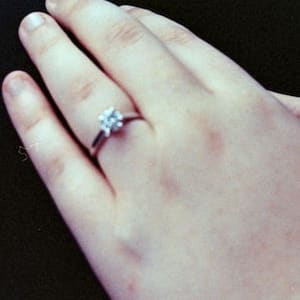make the welkin ring: Idiom Meaning and Origin
What does ‘make the welkin ring’ mean?
The idiom "make the welkin ring" means to make a loud, joyous noise that resonates and fills the air. It is often used to describe a loud and enthusiastic celebration or applause that is so loud it seems to shake the heavens.

Idiom Explorer
The idiom "with bells on" means to eagerly and enthusiastically participate in something or to arrive at a place promptly, often with a sense of excitement or anticipation.
An idiom meaning to feel extremely happy and successful.
The idiom "music to someone's ears" means that something is pleasing or gratifying to hear.
The idiom *move heaven and earth* means to do everything possible or make every effort to achieve a goal or solve a problem.
The idiom "make waves" means to cause trouble or create a disturbance by doing something unconventional or challenging the status quo.
The idiom "make the world go around" means that something is essential or fundamental to the functioning or success of society or an organization.
The idiom *make the weather* means to have a significant impact or influence on a situation or to be in a position of power and control.
The idiom "make someone's ears sad" means to say or hear something that is upsetting, disappointing, or disheartening to someone.
The idiom "make someone's day" means to do something that brings joy or happiness to someone, often by doing a small act of kindness or providing a pleasant surprise.
Welkin's Echo
The idiom "make the welkin ring" is a phrase that has been used in the English language for centuries. It is derived from the Middle English word "welken," meaning to bellow or make a loud noise. The word "welkin" itself refers to the sky or the heavens, and is often used in poetic or archaic contexts.
The phrase "make the welkin ring" is often used to describe a loud, resounding noise or a clamorous outburst. It is typically used metaphorically to convey a sense of great enthusiasm, excitement, or jubilation. The image of the welkin ringing evokes a sense of sound filling the vast expanse of the heavens, reaching far and wide.
This idiom first appeared in written form in the late 16th century, in a play by Thomas Kyd called "The Spanish Tragedy." In one of the scenes, a character exclaims, "Now, heaven and earth, make the welkin ring." This early usage suggests that the phrase was already known and understood by the audience at that time.
Over the years, "make the welkin ring" has been commonly used in literature, poetry, and drama to emphasize the power and impact of a loud noise or a raucous celebration. It has also been used in political speeches and public gatherings to encourage a crowd to cheer or applaud enthusiastically.
The idiom has maintained its popularity and usage into the present day, although it is more commonly found in older writings or as a literary flourish. The phrase has become somewhat archaic in modern usage, and is not as widely recognized or understood as some other idiomatic expressions.
While the exact origins of the idiom are unclear, it is likely rooted in the human fascination with sound, particularly loud and impressive sounds. The image of the welkin ringing captures the imagination, invoking a sense of awe and wonder at the power of noise and its ability to reverberate through the heavens.
Overall, "make the welkin ring" is an idiom that conveys a sense of loudness, enthusiasm, and exuberance. Its origins may be shrouded in mystery, but its usage and impact in literature and language are unmistakable. The phrase serves as a reminder of the enduring power of words to evoke emotion and create lasting impressions.
The idiom "make waves" is related to "make the welkin ring" in that both phrases convey a sense of making a significant impact or creating a stir. While "make the welkin ring" emphasizes the power and reach of a loud noise, "make waves" suggests the creation of a disturbance or disruption that ripples outward.
Similarly, the idiom "make it rain" is related to "make the welkin ring" in that both phrases capture a sense of abundance and extravagance. While "make the welkin ring" refers to the clamorous expression of joy or enthusiasm, "make it rain" implies the lavish and generous distribution of wealth or resources.
Furthermore, the idiom "make a scene" is related to "make the welkin ring" in that both phrases involve drawing attention or causing a commotion. While "make the welkin ring" specifically relates to a loud noise or uproar, "make a scene" refers to a dramatic or disruptive display of emotions or actions.
Lastly, the idiom "with bells on" is related to "make the welkin ring" in that both phrases convey a sense of excitement and readiness to participate. While "make the welkin ring" evokes a joyous and exuberant atmosphere, "with bells on" suggests a willingness and eagerness to join in on the celebration or event.
Example usage
Examples of how the idiom "make the welkin ring" can be used in a sentence:
- The crowd cheered so loudly that it made the welkin ring.
- When the team scored the winning goal, the stadium erupted and made the welkin ring.
- Her powerful singing voice made the welkin ring throughout the concert hall.
More "Expression" idioms



